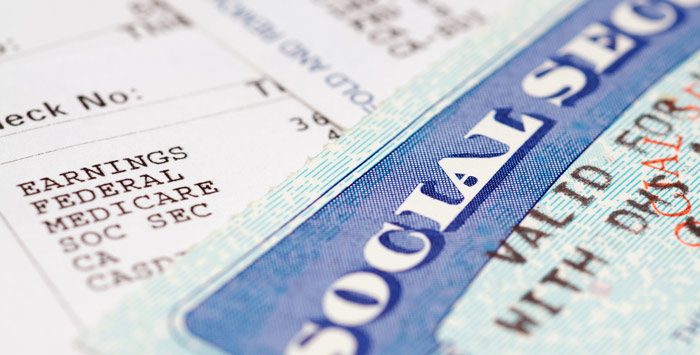Q: Is it a good idea to enroll in Medicare before I sign up for Social Security?
A: The need for health coverage can arise before your need for Social Security benefits. Social Security and Medicare are interrelated, but it’s possible to sign up for one without the other. You’re allowed to collect Social Security as early as age 62. Meanwhile, Medicare eligibility begins for most people at age 65.
When does it pay to enroll in Medicare before Social Security?
You might assume that it pays to sign up for Social Security prior to Medicare, but in many cases, it actually pays to enroll in Medicare first.
Unless you’re disabled, you won’t be able to enroll in Medicare prior to age 65. And unless you’re continuing to work and receive employer-sponsored coverage, there’s no benefit (and there are potential drawbacks) to delaying your Medicare enrollment more than three months after you turn 65.
So in almost all cases, your Medicare enrollment window will correspond closely with your 65th birthday, and the coverage you receive under the program won’t vary based on when you enroll. But the age at which you sign up for Social Security will dictate what your monthly benefits under Social Security amount to.
Your Social Security benefits are calculated with a formula that uses your average inflation-adjusted monthly wage over your 35 highest-paid years in the workforce. Your resulting monthly benefit will be available to you in full once you reach what’s known as full retirement age. That age is currently between 66 and 67, depending on your year of birth.
If you file for Social Security prior to full retirement age, your benefits will be reduced for each month you claim them early. You can also delay your Social Security benefits past full retirement age and boost them by 8% a year in the process, up until age 70, which is generally considered the latest age to claim Social Security. (You’re technically not forced to sign up at that time, but your benefits will no longer increase if you continue to wait.)
Knowing that, it’s easy to see why signing up for Medicare prior to Social Security makes sense. If you enroll in Medicare at age 65, but you don’t reach full retirement age until 67, you’ll shrink your monthly Social Security benefits for life by signing up for both simultaneously.
What will happen to my Medicare premiums if I enroll in Medicare before Social Security?
If you’re already at least 65 and you haven’t yet enrolled in Medicare when you activate your Social Security benefits, you’ll automatically be enrolled in Medicare Part A at that point.
Medicare Part A is premium-free in most cases. But your Part A coverage will be backdated by up to six months. (If you turned 65 less than six months earlier, your Part A coverage will be backdated to the month you turned 65.) Medicare Part A will disqualify Health Savings Account (HSA) contributions for the part of the tax year you have Part A (this includes being enrolled retroactively), so plan any contributions accordingly – including contributions your employer makes.
You will not automatically be enrolled in Part B if your initial seven-month enrollment window for Medicare has already ended. You’ll have an opportunity to enroll in Part B during the general enrollment period, which runs from January 1 through March 31 each year, with coverage effective in July. And you may owe a late enrollment penalty for Part B once you enroll. (Note that if you’ve continued to work and maintained employer-sponsored coverage, you’ll have an opportunity to enroll in Part B when you retire from your job, without a late penalty.)
If you’re still working when you turn 65 and covered under your employer’s health plan, you’ll likely still enroll in at least Medicare Part A, which is premium-free for most people. If your employer-sponsored plan is considered primary coverage (ie, they have at least 20 employees), you can probably delay your enrollment in Part B, and just have premium-free Medicare Part A. But if your employer is small enough that the coverage they offer will be secondary to Medicare, you’ll likely need to enroll in both Part A and Part B.
But either way, that doesn’t necessarily mean you need Social Security benefits to supplement your income while you’re still working. If your paycheck is the same amount you’re used to collecting, and you can live on it, then you may find that you prefer to delay your Social Security retirement benefits in order to have permanently larger Social Security checks once you do begin receiving them.
Not only that, but if you earn an income from a job while collecting Social Security prior to full retirement age, you’ll risk having a portion of your benefits withheld if your earnings exceed a certain threshold. (Your benefits would then increase at full retirement age to make up for the withheld benefits). So if you’re turning 65 and continuing to earn an adequate salary, it might make the most sense to enroll in Medicare (either Part A, or Part A and Part B, depending on the specifics of your employer-sponsored plan) and wait to sign up for Social Security until your full retirement age, or even beyond.
If I'm 65 and enrolled in Medicare, why might I wait to sign up for Social Security?
One final thing: Even if you’re not working at age 65, signing up for Medicare before Social Security could make sense. Imagine you’ve retired and need health coverage, but you have enough money in savings to tide yourself over for a few years so you can let your Social Security benefits grow. In that case, enrolling in Medicare – which you should almost certainly do at age 65 – prior to Social Security could be a smart move.
Since being on Social Security is not a prerequisite to enrolling in Medicare, many people choose to delay their Social Security retirement benefits for up to a few years after their Medicare coverage begins. If you sign up for Medicare first, you’ll need to pay your monthly Part B premiums yourself, whereas Social Security recipients have those premiums deducted directly from their benefits.
But if you sign up for Medicare Easy Pay, you’ll have the cost of those premiums deducted directly from a savings or checking account so that you don’t have to think about them or worry about being late. Once you’re collecting Social Security, you’ll have the option of paying Medicare Advantage or Part D plan premiums directly to your insurer or having them deducted from your Social Security.
Maurie Backman has been writing professionally for well over a decade, and her coverage area runs the gamut from healthcare to personal finance to career advice. Much of her writing these days revolves around retirement and its various components and challenges, including healthcare, Medicare, Social Security, and money management.
Tags: health savings account, Medicare Part A, Medicare Part B, retirement, Social Security








